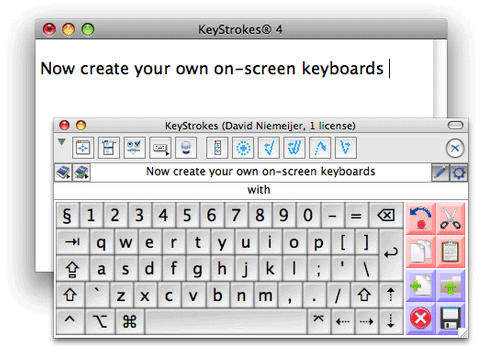 In Part II of our expert series on the future of healthcare and The Patient, OneMedPlace sits down with Dr. Cynthia Haines to discuss the digitization of the waiting room.
In Part II of our expert series on the future of healthcare and The Patient, OneMedPlace sits down with Dr. Cynthia Haines to discuss the digitization of the waiting room.
 In Part II of our expert series on the future of healthcare and The Patient, OneMedPlace sits down with Dr. Cynthia Haines to discuss the digitization of the waiting room.
In Part II of our expert series on the future of healthcare and The Patient, OneMedPlace sits down with Dr. Cynthia Haines to discuss the digitization of the waiting room.
We are seeing a new push by healthcare providers to better educate patients, and the development of various tools to do so. At home, patients are venturing online to become better educated and more in touch with their healthcare. Experts believe this information revolution — and the digitization of the physician-patient relationship — is the first step in instituting a paradigm shift toward personal, empowered healthcare.
The question now becomes, how can patients and physicians use the tools in front of them to re-take charge of their health care (notice how we now separate the compound word)? Further, how can the medical community use these tools to combat the inefficiencies of the healthcare system?
How can a physician, for example, use social networking to expand her referral network? How can a drug company use blog databases to target a specific patient population? How can a tablet in the waiting room eliminate healthcare fraud, and at the same time educate readers on particular conditions?
As an author, editor and family physician, Dr. Cindy Haines is in a unique position to navigate us through the digitization of healthcare. In light of recent activity by one company in the health information space, Epion Health, which markets the Smart Screen health tablet, we asked Dr. Haines about the healthcare tablet, empowering the patient through digital tools, and what the waiting room of tomorrow will look like.
********************
OneMedPlace: From a physician perspective, why are tablets in the waiting room important?
Cindy Haines: Tablets in the waiting room provide a novel opportunity: utilizing “smart technology” to help us work smarter. I define this as being more efficient and more effective in each visit. Delivering to our consumers (our patients) what they really want from us: better health and better health outcomes at less cost (monetary and energy-wise) to them. The added benefit is that this can also help clinicians get what they really want too: better health and better health outcomes for their patients at less cost (to the patient, in terms of patient money and energy, but also less cost to the clinician in terms of wasted energy and other wasted resources).
OMP: What services should tablets provide?
CH: Everything from registration assistance, info about visit or their conditions to interactive education, games, health news. I’m hesitant to want advertisements from drug companies.
OMP: What information will be most valuable?
CH: Patient-centric information is key. In other words, information that means something to each patient, customized according to clinical factors/patient demographics. Tablets should provide engaging information that can empower the patient in advance of the visit. Why are they there? What do they want to accomplish?
OMP: What can these services help to eradicate? In other words, how will tablets make your life easier as a doctor?
CH: The tablet will make life easier if it can “get the patient in the zone” of the purpose of the visit. Important informative tools, such as the top 1-3 things to address, organize and prepare during a visit. Tablets can also also provide information that the doctor may not have time to go over. Getting all relevant complaints/reviews of systems and such in advance of visit would be huge. Having knowledge of all concerns before going into room also key. Trying to boil all these questions and concerns down once the patient is in the room, without all this info, is not efficient.
OMP: How are waiting rooms with elderly or non-tech-savvy patients going to roll out the tablets?
CH: How can they guarantee there will be no frustration? Keep it simple and make it easy: large text, few objectives, patient assistance.
OMP: Why would a physician buy into a model like Epion Health or Phreesia over simply purchasing a tablet privately and uploading apps that they prefer? Why wouldn’t you, as a family physician, just buy an iPad, download a few health information apps (everything from iTriage to HealthDay, e.g.), and put on some games?
CH: The obvious response from Epion is they make your (physician’s) life easier: if you buy their service, you are getting a bunch of info/news that’s been tested to be interesting. You could just get an iPad and download programs individually, but ‘healthcare-focused’ tablet companies give you a “plug and play” option where they do all that work for you. It would remain a cost issue/decision then for the offices. How much more would they spend on Epion Health systems than if they cobbled together something on their own? It may also benefit to get a system like this for the customer care: if, say, continuing upgrades and tech support were offered.
OMP: Do you think insurance companies will buy into the healthcare tablet concept? Why?
CH: I believe they should be vitally invested in patients becoming more empowered and smarter in how they approach the health care system. Health-informed individuals increase their engagement toward better health and better health outcomes. Everyone wins.
OMP: How will tablets help improve a broken system?
CH: An uninformed patient population relies too heavily on the healthcare complex, looking to the doctor to improve aspects of health that should be the responsibility of the individual. Educated patients can take the reins in improving their conditions, learning what they can and should be responsible for to save money, time and dignity. Most importantly, an empowered patient can learn how to use the healthcare system efficiently.
Tablets are uniquely positioned to educate patients in all the right ways: on living healthy and dealing with particular conditions, but also on navigating through the inefficiencies of the healthcare system — spending money wisely and eliminating the excess, extraneous complexities associated with third-party payors and insurance. We often misinterpret the healthcare system as infallible: but if we ultimately can become a population that needs the system less, the medical community can do what it does best.
Dr. Cynthia Haines is the author of ‘ The New Prescription: How to Get the Best Health Care in a Broken System’. If you missed Part I of our expert series, click here.










